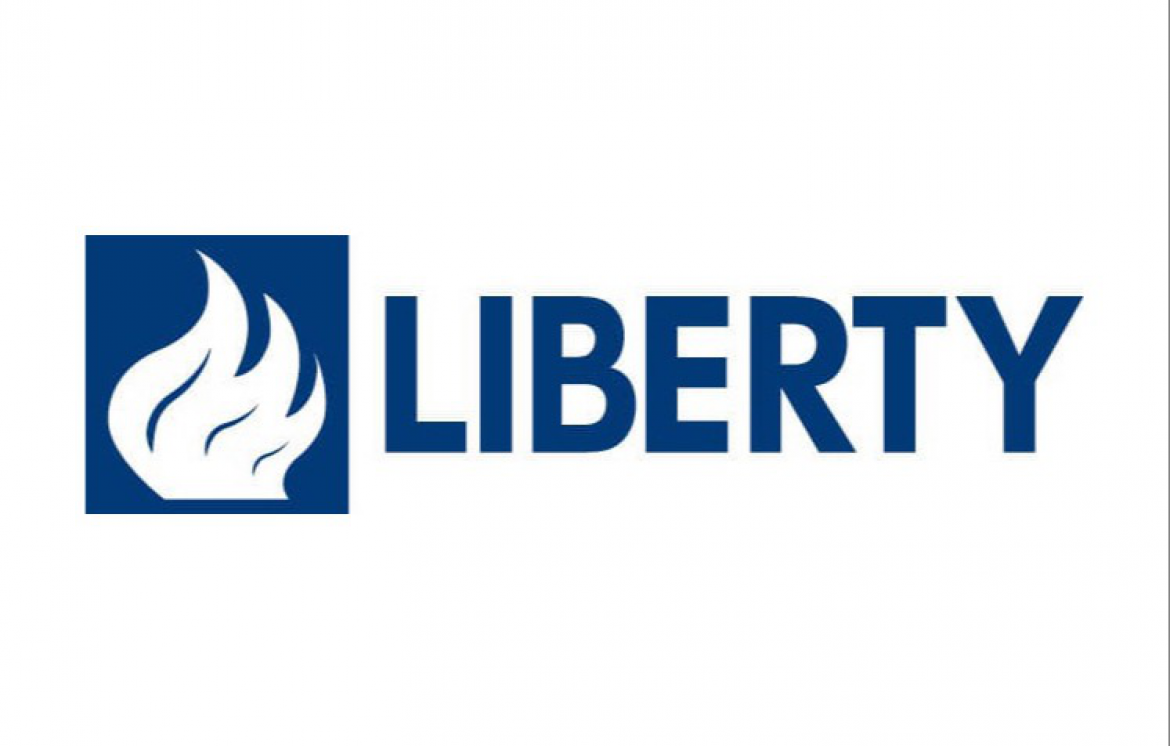
What is Coronavirus?
Coronavirus (Covid-19) is a new virus that has not been seen in humans before, so there is currently no vaccination.
It causes flu-like symptoms including a cough, high temperature and shortness of breath. But these symptoms do not necessarily mean that you have the illness.
Most people with coronavirus have at least one of the following symptoms: a new continuous cough, a high temperature and / or a loss of or change to their sense of smell or taste.
For most people, coronavirus is a mild illness that passes. For others, such as those with underlying health conditions, it can be more serious.
How do I protect myself?
Please follow official advice. To watch our brief safety video, please click here.
- Wash your hands with soap and water often – do this for at least 20 seconds.
- Always wash your hands when you get home or into work.
- Use hand sanitiser gel if soap and water are not available.
- Cover your mouth and nose with a tissue or your sleeve when you cough or sneeze.
- Put used tissues in the bin straight away and wash your hands afterwards.
- Try to avoid close contact with people who are unwell.
- Don’t touch your eyes, nose or mouth if your hands are not clean.
What should I do if I have suspected Coronavirus symptoms?
- If you develop suspected symptoms, you should stay at home and self isolate for at least 10 days.
- If you live with other people, they should stay at home for at least 14 days, to avoid spreading the infection outside the home.
- Use the NHS 111 online service if symptoms become difficult to cope with, get worse or do not go after seven days. Visit https://111.nhs.uk/covid-19/
- The NHS 111 telephone service is available for people who are not online. Only call 111 if you cannot get help via the online service.
- If you have difficulties communicating or hearing, call 18001 111 on a textphone or use the NHS 111 British Sign Language interpreter service here: https://interpreternow.co.uk/nhs111
- In an emergency (life threatening) situation, dial 999.
What is the latest situation on results for the academic year ending 2019/20?
Any students still waiting for qualifications results from this summer will receive them by email.
Student and staff safety remains our top priority. Please do not come into the College to collect your results.
Results for some vocational qualifications are continuing to be sent to students on a rolling basis in line with the release of the information from the awarding bodies, and this differs on a course by course, course level and awarding body basis.
We would like to reassure all students and applicants that if you have a course offer with us, that still stands and you can progress as planned.
If you have any further queries about this, please discuss them at your enrolment appointment.
- For enrolment queries, email admissions@sheffcol.ac.uk.
- For careers guidance, email CEIAG@sheffcol.ac.uk.
We understand this has been a challenging time. Thank you for your patience and understanding.
A Levels and GCSEs results
GCSE results were issued to students via their college email account after 9am on Thursday, August 20th 2020.
Ofqual announced a change to the approach used to calculate A Level and GCSE grades.
Ofqual has confirmed that results have been based on centre assessment grades - those predicted by your teachers or those calculated by Ofqual, whichever is higher.
- If you have any questions, please contact exams@sheffcol.ac.uk for further information.
- If you need guidance on your next steps, please contact our careers team. Email CEIAG@sheffcol.ac.uk.
How have the grades been calculated?
The grades that you receive this summer will look exactly the same as in previous years, and they will have equal status with universities, colleges and employers, to help you move forward in your lives as planned.
Ofqual confirmed, in a statement on August 17th 2020, that grades awarded to A Level and GCSE students have been awarded on the basis of the ones that teachers submitted, known as centre assessment grades, or those calculated by Ofqual, whichever is higher.
For more information about how grades for A Levels, GCSEs and vocational qualifications results have been calculated, and appeals, please read Ofqual’s latest guidance.
Vocational qualifications
For most vocational qualifications, grades have been calculated on a range of evidence based on the result you would have been likely to have achieved had you completed your assessments in July 2020.
The evidence may include a teacher’s professional judgement, evidence of achievement whilst on programme, a comparison to historic outcomes for the College and a check to see whether there appears to be a reasonable profile of grades compared to similar years.
Some students will already have completed assessments in some modules and, where that evidence usually counts towards a result, it could have been taken into account. In some instances, we may have also been asked to supply a rank order of students.
There are some qualifications that are primarily designed to support progression to or through employment, rather than to further or higher education or to an apprenticeship.
Where it has not been possible to generate a calculated result in those instances, Ofqual has encouraged an adaption of assessments or delivery models as long as this has not undermined the reliability of the result and only where assessments have been able to place within social distancing rules.
A Levels and GCSEs
Ofqual asked the College to send exam boards two pieces of information for each of your A Level and GCSE subjects, based on what we know about your work and achievements.
These were the grade we believe you were most likely to get if teaching, learning and exams had happened as planned and, within each subject, the order of students at the College, by performance for each grade.
Functional skills
Functional skills results will based on teacher calculated grades and a range of evidence to calculate the grades
Where can I get further information, advice and guidance once I’ve got my results?
If you feel that you need support in choosing your next steps, our Careers Advice Team is here to help.
If you didn’t get the grades for your original university choices or you’ve decided at the last-minute that you’d like to start university this September, then you can still apply for a place through clearing.
Alternatively, if you’re not sure that university is the right choice for you and you want to pursue a different route altogether, such as an apprenticeship, we can provide you with impartial advice and guidance on how to proceed.
If you have applied to study a university level course, you will also need to check UCAS Track to see if you have been successful in obtaining your place. Even if you feel that your results haven’t gone exactly the way you would have liked, it is still worth checking UCAS.
- If you need guidance on your next steps, please contact our careers team. Email CEIAG@sheffcol.ac.uk.
What is happening with enrolment for new students this summer?
The College is still accepting applications for courses starting this September 2020.
The way that we are enrolling students this September is different as we continue to put your safety, and that of the general public’s, first.
To reduce the number of people on campus at any one time, whilst continuing to offer an excellent student experience, the enrolment process is taking place online this year.
Applicants should have received a letter with all of the details. You will then need to book a slot to come into the College to show us your exam certificates.
Please note that there will be a minimal number of people attending the College per slot and social distancing measures will be in place throughout.
Once you have enrolled with us, and your grades have been checked, you will receive information about your online induction and getting started with us.
This will include details about creating your college email account as well as information about your timetable and course induction.
Your induction to the College and your study programme will be delivered online.
Some curriculum areas will also expect students to attend a face-to-face session on campus. For example, this may be to go through health and safety requirements in a workshop, salon or kitchen environment.
- If you have any questions or difficulties accessing the online enrolment system, please contact admissions@sheffcol.ac.uk so they can support you through the process.
What is happening with enrolment for returning students this summer?
If you are a returning student, will also ask you to re-enrol online and contact you about that.
- If you are not able to re-enrol online for any reason, then please contact admissions@sheffcol.ac.uk.
Are there still places on courses starting in September 2020?
Yes, the College offers a wide range of courses from entry through to including university level qualifications.
Places are still available for this September 2020.
If you've not already applied, then please read our guidance on how to apply.
What will teaching and learning be like for the next academic year starting September 2020?
Every step is being taken to ensure that our campuses are as safe as possible, based on a thorough college-wide risk assessment. Consequently, things will look a little different in the new academic year 2020/21.
Next term, to help keep everyone safe, there will be fewer face-to-face and more online learning sessions in addition to independent study, including virtual learning.
All of our programmes will have some lessons on college campuses, to ensure that you have met your teachers and the other students in your group and to help you feel part of our vibrant college community.
During the first term, from September to December 2020, the majority of our programmes will be based on blended learning to ensure that we provide a safe environment.
This means that our teaching will be a combination of three approaches:
- Face-to-face lessons on campus
- Face-to-face lessons delivered remotely, for example, using a video chat function
- Self-directed, independent study and learning
The balance will depend on the subject that you study.
For example, programmes with a higher level of technical skills such a construction trade, dentistry, hair and beauty, and performing arts, will require more face-to-face learning sessions to develop those skills.
Programmes of study that are more knowledge based, such as A Levels, will have more face-to-face online learning sessions and independent study.
We will continue to review the College’s next steps for the second term, in line with public health guidance, and keep you updated on any changes to the way that we plan to deliver learning.
Other aspects of what we do will be provided using these different approaches. For example, tutorial support will be provided online during the first term.
In terms of work related experience and activity, we are currently unable to send students into the workplace for industry placements or industry tasters.
However, it is vital to keep building skills to make you employable. Therefore we will deliver an employability skills package through face-to-face online learning sessions and virtual content. We hope to be able to offer placements again after December 2020.
What safety measures have been put in place for students who have needed to return this academic year?
We are doing everything we can to support you and your future career ambitions whilst keeping you and our staff safe.
Every step has been taken to ensure that those students who have needed to return to campus before the end of this academic year 2019/20 have been able to do so safely. Please watch our safety video.
The safety measures include:
- Student timetables for the small number of learners who need to return this term have been planned to ensure that they are on campus for the necessary time only.
- Campuses have marked specific entry and exit points. One-way systems have been introduced, marked with signs. Protective screens are being installed at the reception areas. Classrooms are opened in advance, to avoid unnecessary queuing or gathering.
- Hand sanitiser dispensers are in receptions, classrooms and refectory areas. Communal areas and classrooms are being cleaned before each teaching session and regularly throughout the day.
- Floors are being vacuumed or mopped. Surfaces are being cleaned and bins emptied more regularly than usual. In all active classrooms, specialist wipes will be available to clean IT equipment.
- Lifts are restricted to one person at a time. Priority will be given to those people with limited mobility. Students are encouraged to use the stairs if they are fit and able to do so.
- Refectories have been closed. Limited refreshments are available using contactless payment vending machines. Toilets are restricted to one person at a time.
We will continue to assess the situation and review our plans and safety steps for re-opening in September 2020 according to the latest government guidance.
What will students need to do differently from September 2020?
We’ve introduced Covid-19 Student Guidance that clarifies our expectations of students so that we can work together and follow social distancing rules.
This includes guidance on staying two metres away from others at all times, regularly using hand sanitiser in college, staying in your allocated zone and classroom.
You’ll need to leave campus immediately after classes, use the stairs rather than lifts and make sure tables and surfaces are left clear.
Based on current social distancing recommendations, from September 2020, we may need to introduce social bubbles, for example, smaller class groups.
We are also looking at plans to stagger student timetables so that we manage the number of learners on site at any point in the day and avoid large gatherings outside of classrooms, by the lift areas and in the refectories.
We anticipate that all of the health and safety measures currently in place this summer, for the small number of students who have had to return, will stay in place, for example, one-way systems, hand sanitisation and cleaning.
How can we travel to the College safely?
Where possible, we are encouraging students to walk, cycle or drive to our campuses. If this is not possible, and you must use public transport, please ensure that you follow the latest government guidelines.
This includes wearing a face covering and maintaining a safe distance between you and other passengers.
Are the College's nurseries at City Campus and Hillsborough Campus open?
Yes, both nurseries are currently open to three and four-year-olds as well as key worker and vulnerable children.
The nursery will be open as normal from September 2020. Please contact the nursery to find out more and apply for a place.
- Email city.nursery@sheffcol.ac.uk or hillsborough.nursery@sheffcol.ac.uk.
- Telephone City Nursery on 0114 2602818 and Hillsborough Nursery on 0114 2602911.
I am having problems accessing financial support - what should I do?
If you are eligible for financial support from the College and have any questions or concerns about accessing that, then please email us on financial-support@sheffcol.ac.uk.
I have a safeguarding concern - what should I do?
If you have a safeguarding concern, please email us immediately on safeguarding@sheffcol.ac.uk.
Where can I get more mental health information and support?
- Kooth: www.kooth.com
- Mind: https://www.mind.org.uk/
- Samaritans: https://www.samaritans.org/
- Sheffield Mental Health Service: https://www.sheffieldmentalhealth.co.uk/
- Young Minds: https://youngminds.org.uk/blog/what-to-do-if-you-re-anxious-about-coronavirus/
- Uniheads: https://www.uniheads.co.uk/students (students and apprentices should follow the joining instructions sent to your college email account on 18th May 2020).
Where can I find more general information?
NHS health advice: https://www.nhs.uk/conditions/coronavirus-covid-19/
Public Health England: https://www.gov.uk/guidance/coronavirus-covid-19-information-for-the-public
Department for Education Coronavirus Helpline: Telephone 0800 046 8687. Email: DfE.coronavirushelpline@education.gov.uk
The helpline is for students, staff, and parents and carers, who have questions about Covid-19 relating to education.

